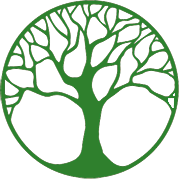Ronen Grunberg on Epicureanism (by John Smithin)
- Log in to post comments
Hello. My name is John Smithin and I am the Executive Co-Director and a Fellow at the Aurora Philosophy Institute (API) here in Aurora, Ontario. On 10.04.2021 our friend and colleague Ronen Grunberg gave a very interesting talk to the API on ‘Epicureanism’. Several of our members who are philosophy majors remarked that this is a topic that is rarely, if ever, covered in university courses in philosophy. Listening to Ronen, I am convinced that it should be. The video of the talk is available on the API You Tube channel, and also on the API website at www.theapi.ca.
I would like to comment on where the Epicureans stood on the fundamental metaphysical issue in philosophy between realism and idealism. From what Ronen has said the Epicureans seem clearly to have been on the side of realism, far more so than Plato, Descartes, Kant, Hegel, etc. and, to some extent, maybe even more so than the supposed ‘arch-realist’ Aristotle, at least as far as the Theory of Forms is concerned.
That is the positive side of their metaphysical approach, but they seem to me to have been in error (a) in espousing dualism and (b) construing realism purely as materialism in the style of the Greek atomists Democritus and Leucippus.
It is true that (in philosophical dictionaries and similar sources) idealism and materialism are often what are posited as opposites. However, this is false. Both of them reject, or are inconsistent with, one or other of the three basic axioms of existence, identity, and consciousness. Idealism rejects the primacy of existence, whereas materialism effectively rejects consciousness. The true divide in philosophy is between idealism and realism.
For example, social facts, determined by collective intentionality (and hence consciousness), are immaterial but real. Moreover, they can and do have a causal effect on the material world (money is an obvious example). There is, therefore, a realm which is not material but nonetheless real. However, it is neither spiritual nor supernatural. The ontology of the social world is clearly different, in many ways, from that of the physical or material world but they are still both part of the same ‘world’ of existence, and must be consistent with one another. There is no room for dualism. A corollary is that the scientific method is not restricted to the physical sciences. It is possible also in social science. It will take a different form, but can nonetheless be genuinely ‘scientific’.
The next two presentations in our Tuesday Night Philosophy Club series will follow up on some of the themes brought out by Ronen in the discussion about Epicurus. On 27.04.2021, Sherman Balogh will discuss the so-called ‘critical realism’ of the Canadian philosopher Bernard Lonergan. Another issue that concerned the Epicureans was the role of language in shaping, or perhaps distorting, the way in which we perceive reality. On 26.05.2021, Graham Hubbs will discuss the work of the famous 20th century philosopher, Elizabeth Anscombe, an associate of Wittgenstein, who was concerned with precisely this topic.
